The first training module for GISMAЕСR analysts for the Zaporizhia region has been completed
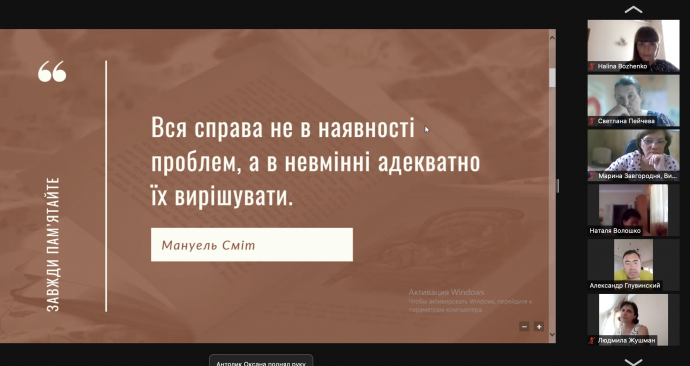
The training is the first module of comprehensive training of local analysts «analytical component of the resource „GISMAOVK“, the purpose of which is to train a team of local analysts, provide them with basic knowledge necessary for collecting, analyzing and describing conflicts in the Geoinformation system for monitoring, analyzing, evaluating and resolving conflicts»GISMAOVK".
It is expected that a team of analysts will work in the Zaporizhia region to monitor conflicts in communities, fill in the GISMAOVK system and popularize the mediation method for conflict resolution together with other specialists who worked and are currently working in the Luhansk and Donetsk regions as part of the GISMAOVK network of analysts.
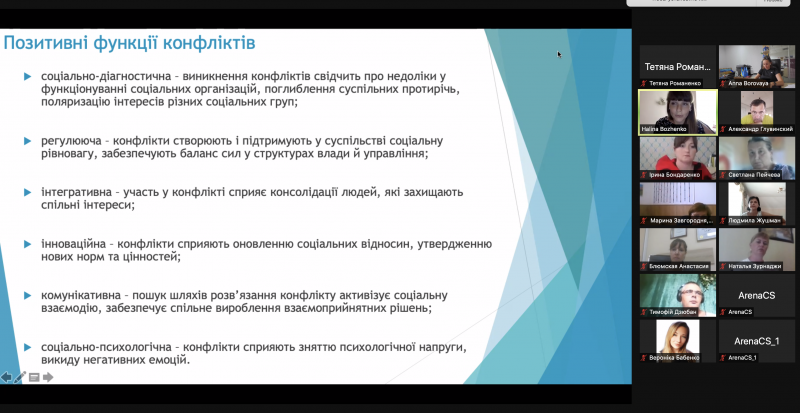
We spent two days dealing with questions:
- on the work of GISMAOVC specialist networks and on social conflicts and their signs and impact on the socio-economic development of the community;
- we discussed and got acquainted with conflict collection methods and conflict mapping on the web platform;
- we did our homework and tried to describe conflicts, and conducted a structured primary analysis of GISMAOVC conflicts.
- we dealt with the social and emotional competencies of conflict analysts (assertiveness and proactivity);
- we got acquainted with the language of situational response (reactive and proactive), conflictogens and syntons, examples of assertive response to situations;
- they mastered techniques of counteraction pressure communication and dealing with overly emotional states;
- we performed test exercises.
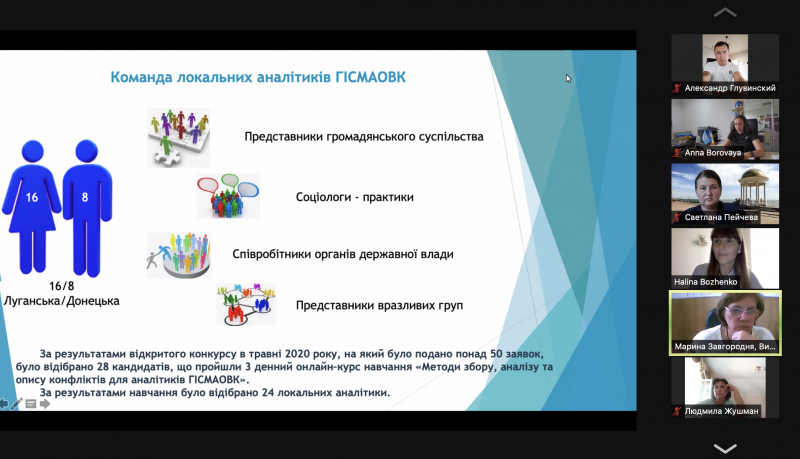
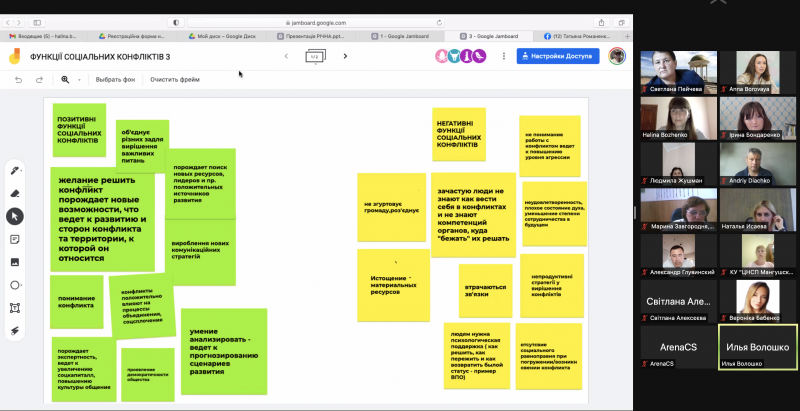
Based on the results of the online training, the group will continue to learn and practice on the next three-day module called «new tools for Conflict Analysis and monitoring, international practice of early detection, response and Prevention of conflicts», which is the second module of comprehensive training of local analysts «analytical component of the GISMAOVK resource».
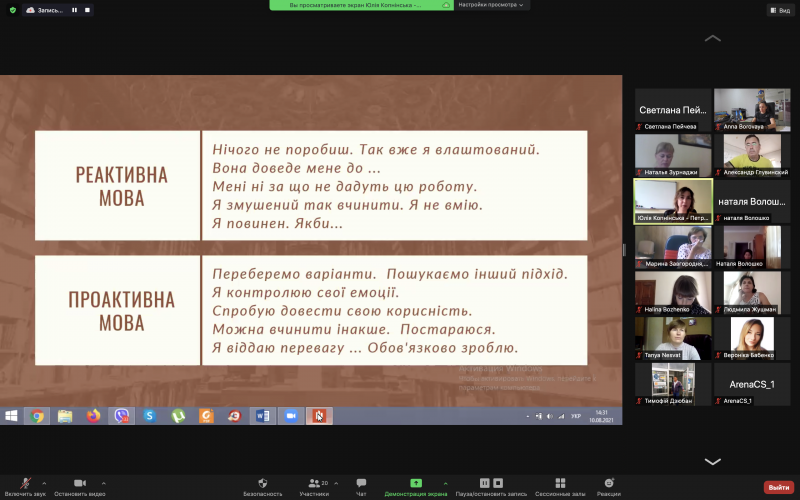
The online training was held within the framework of the UN program for the restoration and development of peace with the financial support of the Government of the Kingdom of the Netherlands.
The United Nations Programme for the reconstruction and development of peace is implemented by four UN agencies: the United Nations Development Programme (UNDP), the United Nations Gender Equality and empowerment (UN Women), the United Nations Population Fund (UNFPA) and the Food and Agriculture Organization of the United Nations (FAO).
The program is supported by twelve international partners: the European Union (EU), the European Investment Bank (EIB), the US Embassy in Ukraine, as well as the governments of Denmark, Canada, the Netherlands, Germany, Norway, Poland, Switzerland, Sweden and Japan.

